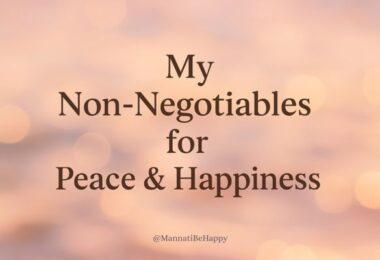Marriage isn’t always a fairytale. It starts with love, laughter, and hope—but over time, things can change. The spark might fade. You might feel misunderstood, unappreciated, or even invisible. If you’re at the point of wondering whether your marriage is worth saving, you’re not alone.
But before you make a final decision to separate or divorce, take a moment to think. Sometimes, it’s not that your love is gone—it’s just buried under years of stress, pain, and silence.
Here are two powerful, real-life reasons to consider saving your marriage, with stories and tips to help you understand what’s really possible.
Reason 1: A Healthy Marriage Can Make Life Richer and Happier
When a marriage is strong, it becomes a safe place—a place to be yourself, to feel supported, and to grow. Many studies show that people in happy, stable marriages enjoy better health, less stress, and even longer lives.
What a Supportive Marriage Looks Like
In a healthy marriage:
-
You feel accepted, even on your worst days.
-
You have someone to share joys, fears, and dreams with.
-
You face problems together instead of alone.
Real-Life Example:
John and Maria have been married for 15 years. John lost his job during a tough time in the economy. He felt ashamed, worried, and scared about their future. But Maria didn’t criticize him. She reminded him of his strengths, helped him polish his resume, and encouraged him to take care of his mental health.
That support gave John the strength to bounce back. Today, he says that the way Maria stood by him during that hard time deepened his love for her more than anything else.
That’s the power of a solid marriage—it gives you a teammate in life.
Reason 2: Most Struggling Marriages Can Be Repaired With Effort
It’s easy to assume that when things get hard, they’re broken beyond repair. But many couples go through rough patches—times when they argue often, stop having fun together, or feel emotionally distant.
These periods feel painful and lonely. But the good news? They don’t have to mean the end.
Why Couples Drift Apart
Often, it’s not lack of love—it’s:
-
Work stress or long hours
-
Raising children and having little time for each other
-
Unhealed past wounds or betrayals
-
Poor communication skills
-
Not knowing how to reconnect emotionally
Real-Life Example:
Tina and Alex felt like their marriage was over. They barely talked except about the kids. When they did talk, it turned into arguments. But instead of giving up, they saw a couples therapist. It wasn’t easy. At first, they both blamed each other. But over time, they learned how to speak honestly without yelling, how to listen without interrupting, and how to reconnect through small, kind actions.
Six months later, Tina said, “I finally feel like we’re a team again.”
What Can Help You Rebuild Your Marriage
If you and your partner are willing to try, many tools can help:
-
Open and honest communication – Talk about how you feel without blame.
-
Seek professional help – A marriage counselor can teach you how to reconnect and resolve conflict.
-
Focus on friendship – Do little things that remind you why you liked each other in the first place.
-
Forgive and let go – Carrying old resentment keeps you stuck. Letting go doesn’t mean forgetting—it means choosing peace.
-
Prioritize each other again – Even 10 minutes a day to talk, laugh, or sit together can rebuild closeness.
Still Not Sure? Ask Yourself These Questions
-
Is there still love between us, even if it’s hidden?
-
Are we both willing to try?
-
Do I believe this marriage could be different with help and effort?
-
Would I regret not trying everything before walking away?
If you answered yes to any of these, then it might be worth fighting for.
When It’s Not a Good Idea to Stay
It’s important to be honest about the situation you’re in. If your marriage includes:
-
Physical, emotional, or verbal abuse
-
Control or manipulation
-
Substance addiction with no effort toward recovery
-
Constant betrayal with no remorse
Then saving the marriage may not be the right or safe choice. Your well-being and safety come first. In those cases, seeking help from a therapist or domestic violence resource center is a wise and brave step.
Final Thoughts: It’s Not Too Late to Reconnect
Marriages go through seasons. Some are warm and full of love, others are cold and lonely. But seasons change.
Sometimes, what looks like the end of a marriage is actually the beginning of something deeper—if both people are willing to grow.
You don’t have to have all the answers right now. But if you can find even a small bit of hope, and if both you and your partner are willing to try, you might be surprised by how much love is still there.
Need Help Starting? Try These First Steps
-
Have one honest conversation: Share how you feel and ask your partner how they feel too.
-
Read a relationship book together: Try “Seven Principles for Making Marriage Work” by Dr. John Gottman.
-
Make a list of three things you appreciate about your partner—and share them.
-
Schedule one “no phone, no kids” hour a week just for each other.
-
Look into couples therapy: A good therapist isn’t there to blame—just to guide.
You both deserve love, support, and connection.
Your marriage might still have all of that—waiting to be uncovered.






